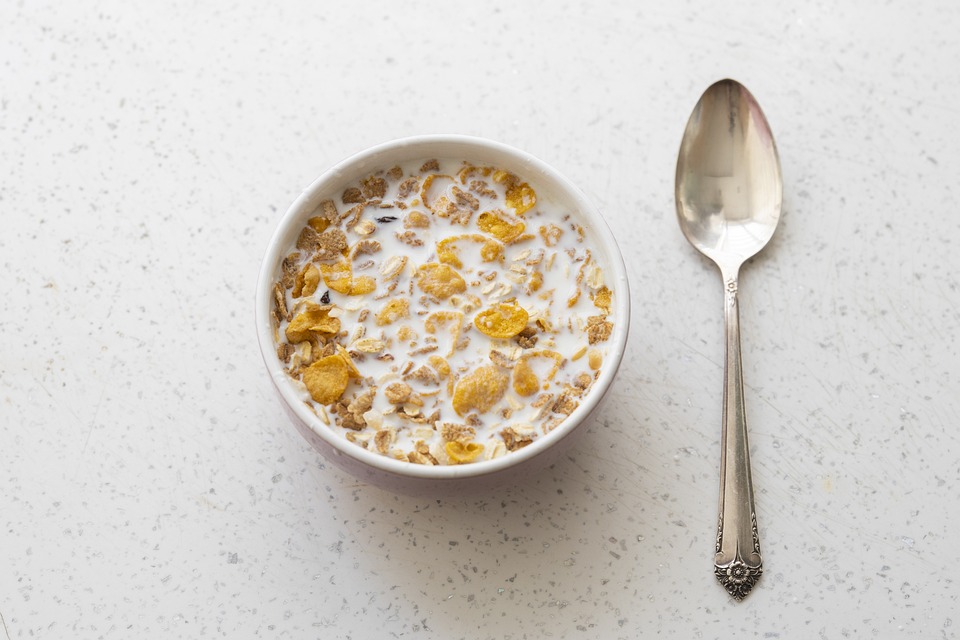Did you know that over 70% of adults in the United States are considered overweight or obese? With rising rates of obesity-related health issues such as heart disease, diabetes, and high blood pressure, there is a pressing need for effective weight loss solutions. The Ultimate Guide to Losing Weight and Keeping It Off offers a comprehensive approach to weight loss that focuses on sustainable lifestyle changes rather than quick fixes or fad diets.
The concept of The Ultimate Guide to Losing Weight and Keeping It Off has evolved over time as researchers and health professionals have gained a better understanding of the complexities of weight loss. This approach emphasizes the importance of balanced nutrition, regular physical activity, and behavioral strategies to help individuals achieve and maintain a healthy weight. In today’s society, where convenience foods and sedentary lifestyles are the norm, this guide serves as a valuable resource for those looking to improve their health and well-being.
One key component of The Ultimate Guide to Losing Weight and Keeping It Off is the emphasis on setting realistic goals and tracking progress over time. Studies have shown that individuals who set specific, measurable goals are more likely to achieve long-term weight loss success. By incorporating tools such as food journals, fitness trackers, and support networks, this guide helps individuals stay accountable and motivated on their weight loss journey. With the right tools and mindset, anyone can achieve lasting results and improve their overall health and quality of life.
The Ultimate Guide to Losing Weight and Keeping It Off
Are you looking for a comprehensive resource on how to successfully lose weight and maintain your progress? This ultimate guide provides you with everything you need to know to achieve your weight loss goals and sustain them long-term. Let’s dive into the essential strategies and tips that will help you on your journey to a healthier and happier you.
Setting Realistic Goals
One of the first steps towards successful weight loss is setting realistic and achievable goals. Whether you want to lose a few pounds or a significant amount of weight, having clear objectives can help keep you motivated and focused on your journey.
- Start by determining how much weight you want to lose and set a timeline for achieving your goal.
- Break your overall goal into smaller, achievable milestones to track your progress along the way.
- Be realistic about the amount of weight you can safely lose each week to avoid unhealthy crash diets.
Developing Healthy Eating Habits
A crucial aspect of successful weight loss is adopting healthy eating habits that support your goals. Making smart food choices and following a balanced diet can help you shed excess weight and improve your overall health.
- Focus on consuming whole, nutrient-dense foods such as fruits, vegetables, lean proteins, and whole grains.
- Avoid or limit highly processed foods, sugary drinks, and unhealthy fats that can hinder your weight loss progress.
- Practice mindful eating by paying attention to portion sizes and listening to your body’s hunger and fullness cues.
Staying Active and Exercising Regularly
In addition to healthy eating, regular physical activity is essential for weight loss and maintenance. Incorporating exercise into your daily routine can help you burn calories, build muscle, and boost your metabolism.
- Find activities you enjoy, whether it’s walking, running, cycling, or dancing, and make them a regular part of your routine.
- Set specific exercise goals, such as working out for a certain amount of time each day or completing a certain number of workouts per week.
- Combine cardiovascular exercise with strength training to maximize your weight loss results and improve your overall fitness.
By following the strategies outlined in this ultimate guide, you can achieve your weight loss goals and maintain your progress in the long run. Remember that consistency, patience, and perseverance are key to success on your journey to a healthier lifestyle.
According to the Centers for Disease Control and Prevention, more than 70% of American adults are overweight or obese.
How can I stay motivated to lose weight?
1. Set realistic goals and celebrate small victories along the way.
2. Find a workout buddy or join a support group for accountability and encouragement.
3. Keep a journal to track your progress and reflect on your journey.
Is it necessary to cut out all carbs to lose weight?
No, not all carbs are created equal. Focus on complex carbs like whole grains, fruits, and vegetables while limiting refined carbs like white bread and pastries. Remember, balance is key to a healthy diet.
How often should I weigh myself when trying to lose weight?
It’s important to remember that weight fluctuates daily due to various factors like water retention and muscle gain. Weighing yourself once a week at the same time of day can give you a more accurate picture of your progress over time.
What are some healthy alternatives to high-calorie snacks?
1. Choose air-popped popcorn or veggie sticks with hummus instead of chips.
2. Opt for Greek yogurt with fresh fruit or a handful of nuts instead of sugary desserts.
3. Snack on rice cakes with avocado or nut butter for a satisfying and nutrient-dense option.
Can I still enjoy my favorite foods while trying to lose weight?
Absolutely! It’s all about moderation and portion control. Treat yourself to your favorite foods occasionally, but balance it out with healthier options and regular exercise. Remember, it’s about progress, not perfection.
Conclusion
In conclusion, losing weight and keeping it off is not an easy task, but with the right mindset, strategies, and support system, it is definitely achievable. By setting realistic goals, making sustainable lifestyle changes, staying consistent with healthy habits, and seeking professional guidance when needed, anyone can successfully embark on their weight loss journey. Remember to focus on progress, not perfection, and be patient with yourself throughout the process. Incorporating a balanced diet, regular exercise, proper hydration, and adequate rest are key components to achieving long-term weight loss success. Additionally, being mindful of emotional eating triggers, practicing self-care, and surrounding yourself with positive influences can help you stay on track and motivated. Ultimately, it is important to prioritize your health and well-being above all else and make choices that align with your long-term goals. By following these tips and staying committed to yourself, you can achieve the weight loss results you desire and maintain a healthy lifestyle for years to come.






